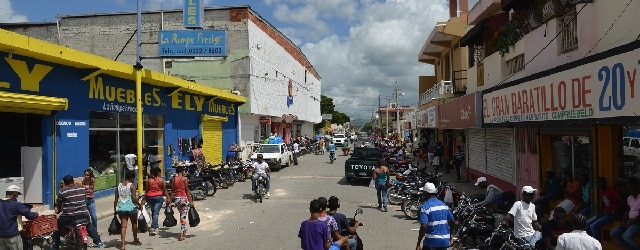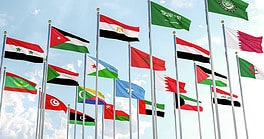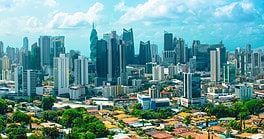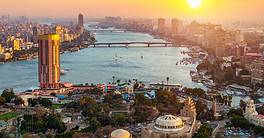The Covid-19 pandemic threatens its recent robust economic growth—and exposes some underlying weaknesses.

|
DOMINICAN REPUBLIC: VITAL STATISTICS |
|---|
|
Location: Caribbean |
|
Neighbors: Jamaica, Cuba, Haiti, the Bahamas, Turks and Caicos, Puerto Rico |
|
Capital city: Santo Domingo |
|
Population (2020): 10,825,490 |
|
Official language: Spanish |
|
GDP per capita (2018): US$8,050.60 |
|
GDP growth (2018): 7.0% |
|
Inflation (2019): 1.8% |
|
Currency: Dominican Peso |
|
Investment promotion agency: Center for Export and Investment |
|
Investment incentives available: Tax exemptions in special frontier zones; range of tax incentives; unrestricted access to foreign exchange; no restrictions on location, local ownership, local content, or export requirements; incentives to businesses developing renewable energy technologies |
|
Ease of Doing Business rank (2020): 115 |
|
Corruption Perceptions Index rank (2019): 137 |
|
Political risks: Questionable government will to implement reforms to promote transparency and bring corrupt public officials to justice; tense relations with Haiti |
|
PROS |
|---|
|
Systemic liquidity |
|
Laws equalizing foreign and domestic investment |
|
Unlimited foreign investment in most sectors, with a few exceptions for hazardous materials or national security |
|
CONS |
|---|
|
Lack of clear rules for competition; frequent failure to enforce existing rules |
|
Allegations of widespread corruption; nonstandard procedures in customs valuation and classification of imports |
|
Delays in government payments |
|
Bureaucratic administration and judicial decision-making at times inconsistent, opaque, and time-consuming |
|
Weak land tenure laws, government expropriation |
|
Sources: Dominican Today, Fitch Ratings, FocusEconomics, Government of Canada Global Travel Advisory, International Monetary Fund, Reuters, Transparency International, US State Department, World Bank, World Population Review |
|
For more information, check out Global Finance‘s Dominican Republic Economic Report data page. |
Since its onset in the Chinese city of Wuhan last December, the Covid-19 virus has wreaked havoc on one economy after another—including the Dominican Republic’s.
For most of the last decade, this Caribbean nation has had GDP growth between 4% and 8% annually, driven by tourism, construction, gold exports and strong domestic demand. Thanks to high GDP growth combined with low inflation, a narrow current account deficit and improving external liquidity in spite of high debt, the Dominican Republic garnered a BB- stable rating from Fitch Ratings, notes Kelli Bissett-Tom, director of Latin America Sovereigns at Fitch.
At the same time, the state suffers from increasing debt and debt costs, losses in the electricity system, and contingent liabilities from the central bank, aggravated by limited policy reform. The tourism industry, the country’s most important source of income, had already suffered losses before the virus canceled many travel plans. “The European economy also impacted the tourism flow,” says Bissett-Tom, who has researched the country for five years.
Slow tourism means declining domestic incomes and foreign exchange reserves, a widening current account deficit and reduced foreign investment. Together, these elements have significantly changed the economic forecast. Fitch has slashed its 2020 GDP forecast from 5.9% growth to a contraction of approximately 2%.
On a positive note, the Dominican Republic’s BB- stable rating has not changed as a result of the pandemic. “There [are] a few stabilizing factors that we’re looking at, [including] the balance of risks; and we don’t see a downgrade,” Bissett-Tom says. These factors outweigh the threat of deterioration and include diversification of income sources and manufacturing exports.
The near-term outlook nevertheless is gloomy, with some notable question marks, according to an analysis prepared for Global Finance by FocusEconomics. The looming recession, and with it the high unemployment precipitated by Covid-19, will likely affect at least some expatriates, forcing them to cut back on remittances they send home from the US. The republic’s ability to restore its tourism revenues is another unknown; its brand was badly tarnished by tourist deaths and serious illness last year, well before Covid-19 curtailed international travel, says FocusEconomics.
Some help is on the way, including a commitment for $150 million in immediate liquidity via a contingent credit line from the World Bank’s Catastrophe Deferred Drawdown Option (Cat-DDO). This is expected to offset some of the financial effects of the Covid-19 crisis. With the republic heavily dependent on imports of fuel and derivatives, record-low oil prices should soften the economic blow. “From the current account and growth perspective, oil prices are going to be supportive of growth,” Bissett-Tom says.
Still, some seemingly intractable problems that predate the crisis—including lax enforcement of competition rules, allegations of corruption, weak protection of intellectual property and bureaucratic hurdles—continue to make investors wary and are likely to complicate the country’s recovery.



